We used genomics to improve health for everyone.
About the Partnership
Genomics-driven personalised care offered an incredible opportunity to create better patient outcomes and a more equitable and efficient health care system.
Illumina and the University of Melbourne came together to offer scalable next-generation sequencing, combining research and biomedical industry expertise to move genomics beyond the lab into routine clinical care.
While the formal partnership has now concluded, both Illumina and the University of Melbourne will continue to work together to accelerate the translation of biomedical research, making genomics more affordable and accessible to improve health for everyone.
What we’ve achieved
TAGC brought together the best researchers, health economists, and industry experts to create world-leading biomedical projects.
With the support of Invest Victoria, we established a flagship $60 million hub inside the Melbourne Biomedical Precinct known as The Advanced Genomics Collaboration (TAGC). Here’s what we’ve achieved:
Supported 17 clinical trials and multiple major studies
- Including the $5 million MRFF funded SUPER-NEXT study, using genomics to provide clearer diagnosis and targeted, personalised treatment options for patients with cancer of unknown primary origin.
Leveraged over $60 million in funding
- Including $1.9 million for the VCCC Precision Oncology Program, to support availability of a comprehensive toolbox of genomic and molecular tests for clinicians to ensure the right cancer patient receives the right treatment.
- $3.5 million NHMRC grant to develop the ID-Predict platform to target T cell differentiation and function to treat cancer.
Created 123 new jobs
- Including research fellows, curation scientists, bioinformaticians, genomics assistants, and postdoctoral scientists. Building vital knowledge and infrastructure to enable greater levels of genomics research and clinical trials throughout the Parkville Biomedical Precinct.
Sequenced 12,400 patient samples
- Including over 1,522 patients sequenced in real-time through Professor Sean Grimmond’s COLUMN Initiative, focusing on rare or aggressive tumours, including cancers that are resistant to standard therapies and difficult to diagnose cases.
- Sequencing time has been cut almost in half — from about 44 hours on the NovaSeq 6000 to around 25 hours on the NovaSeq X⁺ for the same type of run (PE150bp).
Involved 118 students on internships and graduate research placements
- Equipped the next generation of researchers with the skills to lead the genomics revolution.
- The internships spanned several University of Melbourne faculties – connecting students from different disciplines and fostering a rich mix of skills and perspectives.
The Core Enabling Platforms
The Advanced Genomics Collaboration used three core platforms. These platforms were established to enable fast and affordable research, analysis, trial, commercialisation and application of genomics-based health innovation at both global quality and scale.
Our work has increased genomics innovation and its translation and adoption into the health system to improve patient outcomes.
The Need
Fifteen years ago, the first ever genome sequencing project carried out on humans was completed. The Human Genome Project took more than 13 years, cost more than $3 billion and drew on efforts from scientists and non-scientists around the world.
Since then, the entire landscape of genome sequencing has evolved. The genomics market is projected to double to USD $35.7 billion by 2024, revolutionising biomedical research and medical practice.
Genomics technology is relatively new and disruptive in healthcare. Its successful implementation relies on whole-of-system change. Through the possibilities of rapid diagnosis, early intervention, prevention and targeted therapy, genomic medicine has the potential to transform how we deliver healthcare, promising better patient outcomes and a more efficient health system.
In the next five years, the health care system is expected to generate genomic data from an estimated 60 million global patients. The volume and complexity of that data – and how it is accessed, shared and applied – are enormous. So too are the associated issues around genomic medicine such as data storage, ethics and privacy, nationally-consistent practices, patient access, economic impact and workforce capability.
The formation of TAGC establishes the Melbourne Biomedical Precinct's place on the international stage, to realise a future where genomics enables precision medicine through innovations in molecular diagnostics, the development of targeted breakthrough therapies and disease prevention.

Publications
TAGC’s core enabling platforms and innovation projects have supported multiple publications, contributing to world-leading medical and scientific research.
Media
The TAGC partnership has received more than 250 media mentions, promoting genomics as an incredible opportunity to transform patient outcomes and create substantial efficiencies for the healthcare system.
Resources
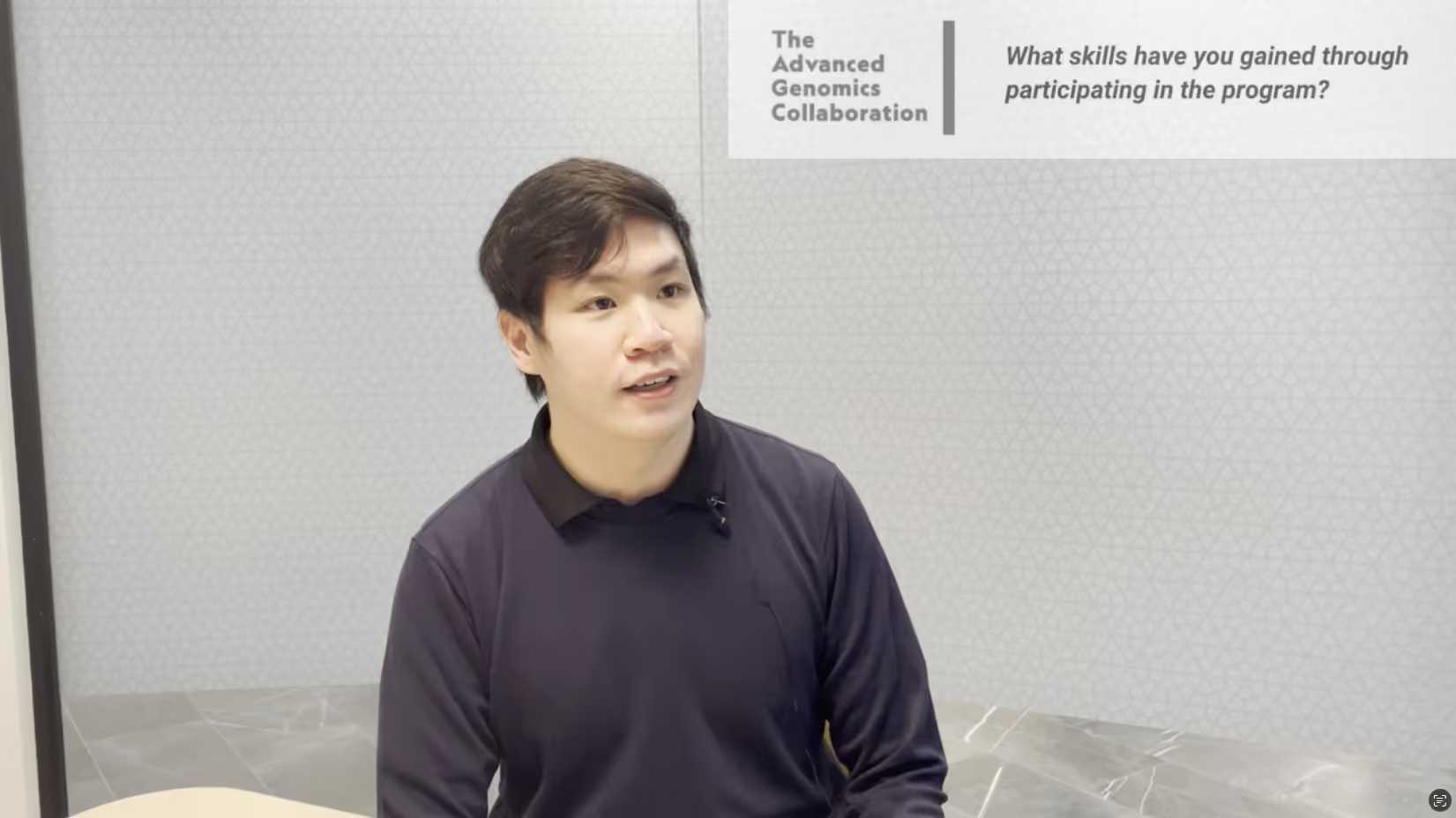
SCOUT Internships | 2024 student experiences
The Advanced Genomics Collaboration’s (TAGC) SCOUT program offers an exciting internship opportunity for University of Melbourne students, providing the opportunity to gain hands-on, multidisciplinary experience in solving real-world challenges. Our 2024 students share their experiences. Learn more.
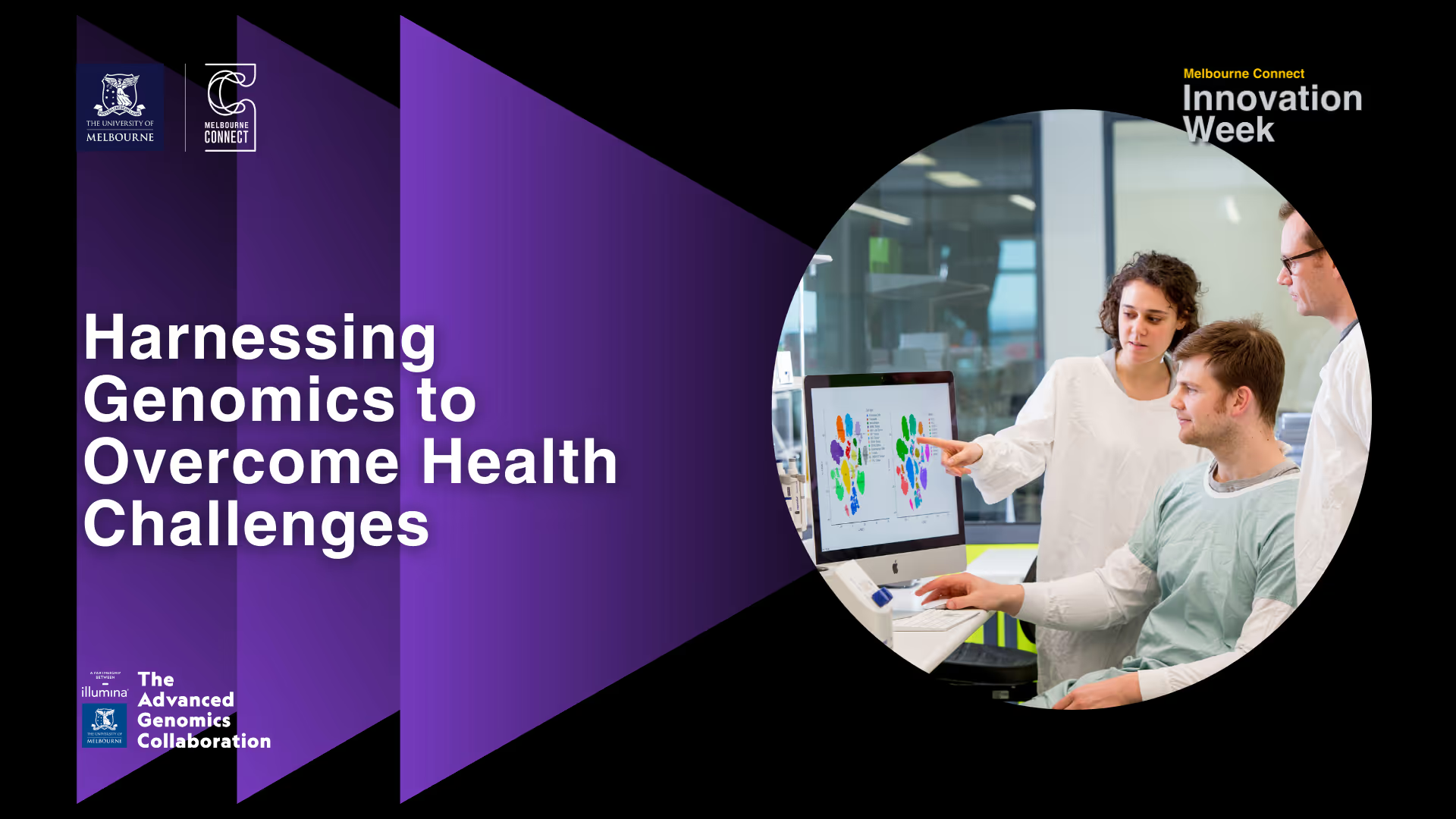
Harnessing Genomics to Overcome Health Challenges
Delve into the transformative world of genomics and its profound impact on healthcare. TAGC's Innovation Projects are leveraging genomics to tackle complex health issues in cancer, inherited eye disease, and gynaecological disorders. Discover how next-generation sequencing is revolutionising research and patient care, ushering in the era of precision medicine with personalised, targeted, and effective treatments, moving beyond traditional methods.
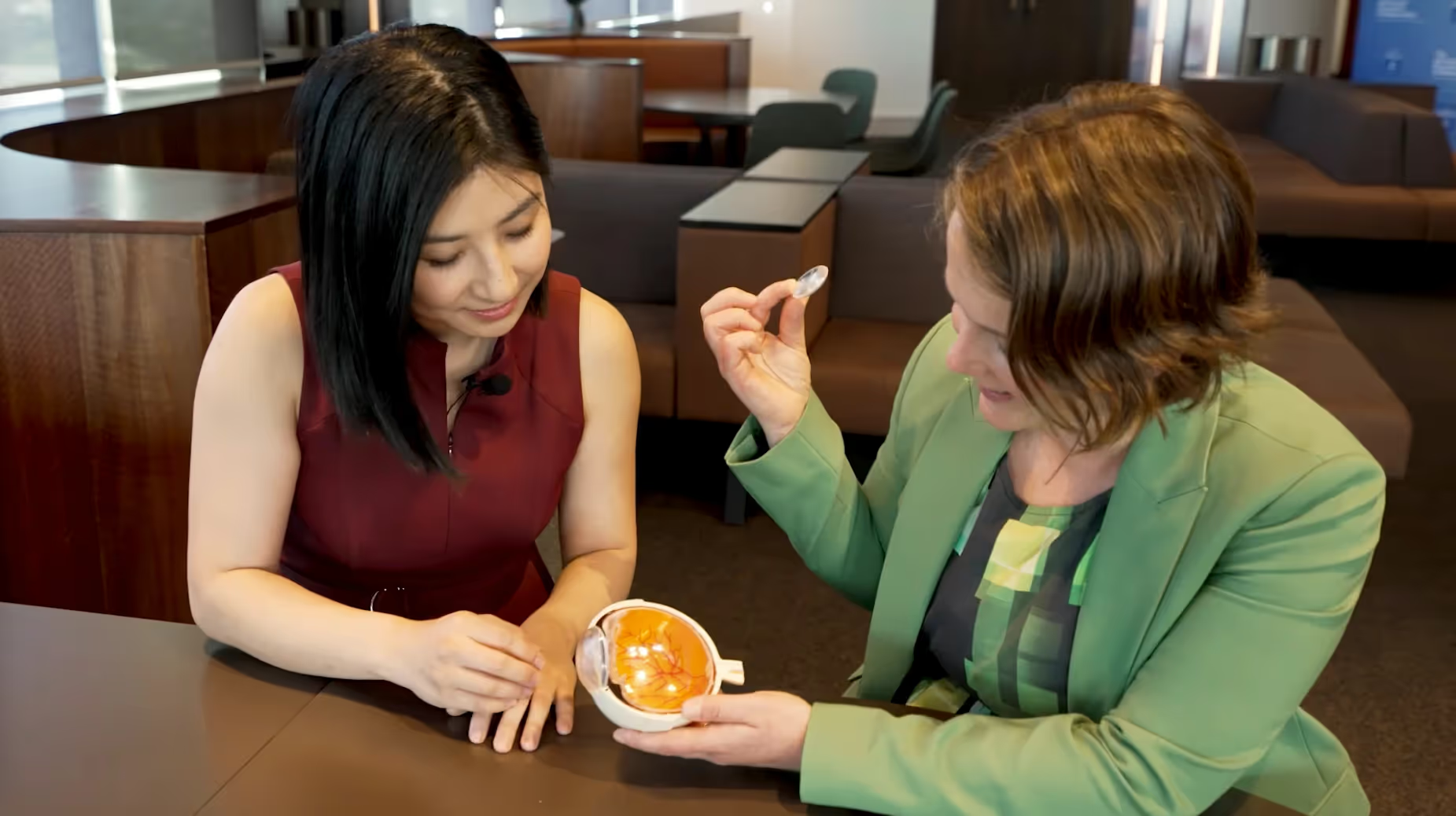
Meet the TAGC Innovation Projects
The Advanced Genomics Collaboration (TAGC) is a biomedical and economic powerhouse that uses genomics to create world-leading projects and businesses that will improve health for everyone. TAGC's Innovation Projects gain access to powerful DNA sequencing technology in TAGC’s world-leading genomics hub made possible through a partnership between the University and global biotech company Illumina, with support from Invest Victoria.
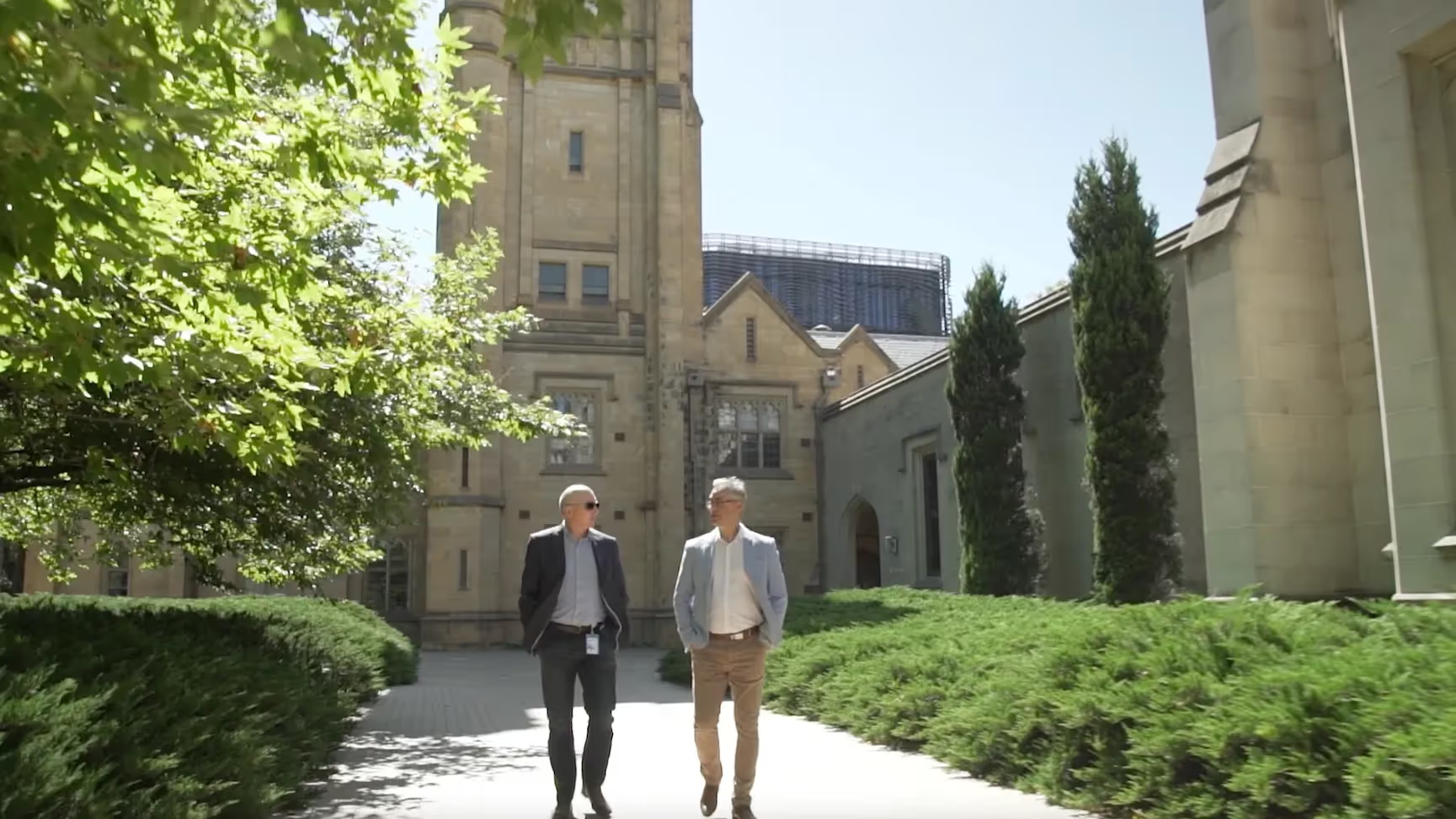
TAGC Case Study | Invest Victoria
Genomics-driven personalised care presents an incredible opportunity to transform patient outcomes and create substantial efficiencies for the healthcare system. With support from Invest Victoria, Illumina and University of Melbourne established The Advanced Genomics Collaboration (TAGC)—presenting an incredible opportunity to transform patient outcomes and create substantial efficiencies for the healthcare system through genomics-driven personalised care. Read and watch more.
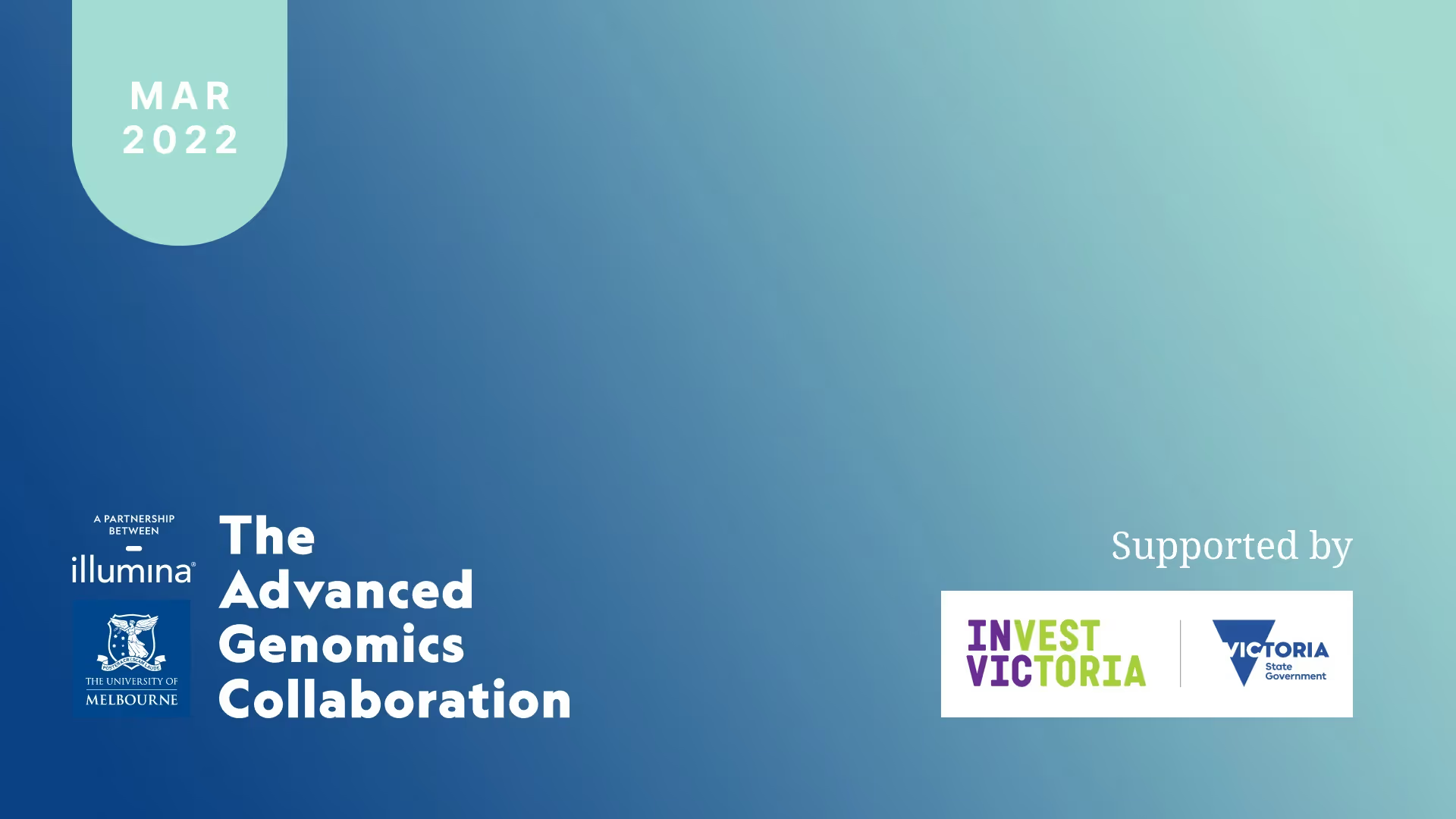
TAGC Panel Discussion
What is The Advanced Genomics Collaboration and why has it been established? Paul Cross, editor of Pharma Dispatch, spoke to Professor Jim McClusky, Deputy Vice-Chancellor (Research), The University of Melbourne, Tom Berkovits Sr Director, Marketing, Illumina, and Danni Jarrett, CEO Invest Victoria, about the opportunities presented by bringing together academic and industry experts in genomics.